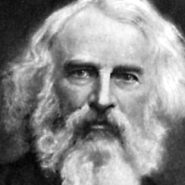By Lord Byron (1819)
I want a hero — an uncommon want,
When every year and month sends forth a new one;
Till, after cloying the gazettes with cant,
The age discovers he is not the true one;
Of such as these I should not care to vaunt,
I’ll therefore take our ancient friend Don Juan —
We all have seen him, in the pantomime,
Sent to the devil somewhat ere his time.
But — Oh! ye lords of ladies intellectual,
Inform us truly, have they not hen-peck’d you all?
Juan was taught from out the best edition,
Expurgated by a learned criticism —
Till gravely taught by woman and by passion,
He grew — I’ll spare you farther exposition.
For brevity’s sake — suppose him at sixteen,
A handsome stripling, and as yet quite green.
Originally published in Don Juan (1819) by Lord Byron. Public domain.
Analysis
“Don Juan” replaces epic heroism with comic candor. In ottava rima — the stanza of high narrative mischief — Byron talks to the reader with a wink, mocking public virtue and fashionable hypocrisy. The narrator is both ringmaster and moralist, puncturing lies with rhyme and enjambment that snap shut on a punch line.
Byron’s genius is to make satire feel companionable. While the plot merrily compromises its protagonist, the poem indicts a culture that teaches innocence and then punishes it. The result is a modern epic where wit becomes a weapon against cant, and desire, observed without piety, yields a sharper ethics than sermonizing.
